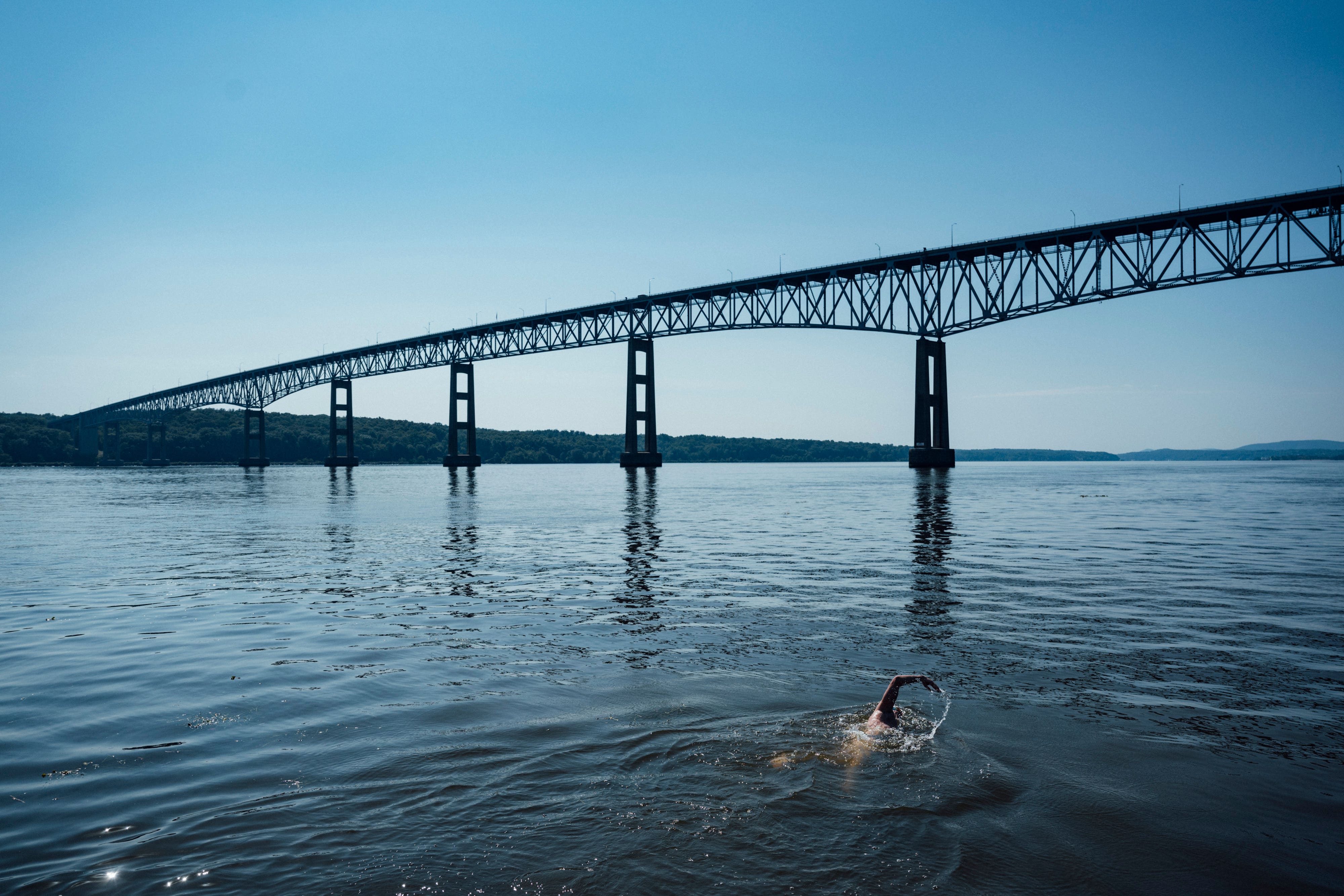British endurance athlete finishes 315-mile Hudson swim for river health
UN patron of the oceans Lewis Pugh said he dreams of the day when people can swim down British rivers without getting sick.

Your support helps us to tell the story
From reproductive rights to climate change to Big Tech, The Independent is on the ground when the story is developing. Whether it's investigating the financials of Elon Musk's pro-Trump PAC or producing our latest documentary, 'The A Word', which shines a light on the American women fighting for reproductive rights, we know how important it is to parse out the facts from the messaging.
At such a critical moment in US history, we need reporters on the ground. Your donation allows us to keep sending journalists to speak to both sides of the story.
The Independent is trusted by Americans across the entire political spectrum. And unlike many other quality news outlets, we choose not to lock Americans out of our reporting and analysis with paywalls. We believe quality journalism should be available to everyone, paid for by those who can afford it.
Your support makes all the difference.Endurance athlete Lewis Pugh has completed a 315-mile swim down the Hudson River in New York to show the world that rivers can be cleaned up enough for people to swim in, fish in and drink from.
Averaging 10 miles a day in just his trunks, cap and goggles, the UN patron of the oceans arrived at the southern tip of Manhattan island on Wednesday after a month of traversing powerful currents and avoiding boats, with bald eagles and ospreys soaring above him.
The completion of the swim comes days before New York City hosts its climate week and government ministers from around the world gather at the UN General Assembly.
Mr Pugh will speak to UN delegates about the importance of cleaning up pollution as “we cannot have a healthy planet without healthy rivers”.
Speaking to the PA news agency shortly after getting out of the water, he said: “This was one of the most polluted rivers in America. It was one of the most polluted rivers in the world – 50 years ago this would have been absolutely impossible.
“I’ve done five river swims in my life. In three of them I got really sick, in two of them I didn’t get sick. Those two rivers were the Hudson and a river down in Antarctica. That says everything.”
Mr Pugh started his swim at Lake Tear Of The Clouds, high in the Adirondack Mountains, from where the Hudson begins its winding route through New York State.
On the way he met scores of people living along the banks who have been working to clean the river over the past 50 years, with the president of Marist College jumping in with his students to join Mr Pugh as he swam past the school.
The 53-year-old said he got “seriously sick” after swimming the length of the River Thames, adding: “I dream of the day when a vice chancellor of a British university can swim down his or her river, which goes through their campus, with their students because that’s what it should be like.
“All rivers should be swimmable, drinkable and fishable.”
He described many sections of the river as “very peaceful and beautiful”, seeing bald eagles, ospreys, vultures, beavers and a startled black bear, adding: “You don’t get that at the North Pole.”
Mr Pugh has also swum the Red Sea, raising awareness of the danger to coral reefs, and did his first long-distance swim when he was just 10, between Robben Island and Cape Town, South Africa.
He also became the first person to swim the length of the English Channel, from Land’s End to Dover, in a call for protection of UK waters.
Last year he was given an honorary degree from the University of Stirling for his lifelong work in promoting environmental issues around the planet.
He said: “A lot of elderly people have come up to me, and they’ve said how much joy it brings to them to see their children and their grandchildren swimming in a river because they couldn’t when they were young.
“And yes, more needs to be done and we must continue to be vigilant and we cannot be complacent when it comes to protecting the environment.
“But I really do believe that this river gives hope to people around the world – in India, in China, in Britain, in South Africa, that one day, their river can also be saved.”